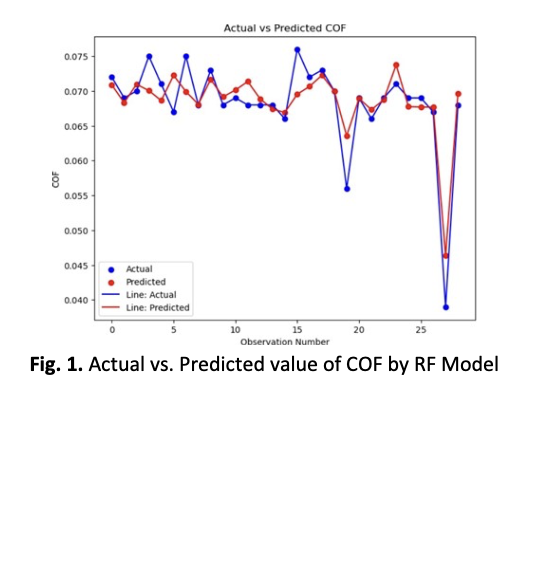Prediction of Tribological Behaviour using Machine Learning
Keywords:
Tribology, machine learning, random forest, decision tree, support vector regressionAbstract
Tribology plays a pivotal role in determining the performance and durability of mechanical systems. Friction and wear reduce component life, increase costs, and affect system reliability. This study explores how Machine Learning (ML) models can predict tribological behavior-specifically coefficient of friction (COF), temperature, and worn area-based on experimental data from block-on-ring tests. Using lubricants and coatings as input parameters, three supervised ML algorithms were applied: Random Forest (RF), Decision Tree (DT), and Support Vector Regression (SVR). The dataset was pre-processed and split into training and testing sets. Hyperparameters were optimized using grid search. Results show RF provides the best accuracy for COF and worn area prediction, while DT performs best in predicting temperature. SVR showed the least accuracy across all outputs. These findings demonstrate the potential of ML as a predictive tool in tribology.










